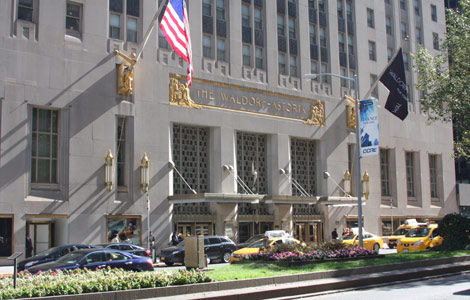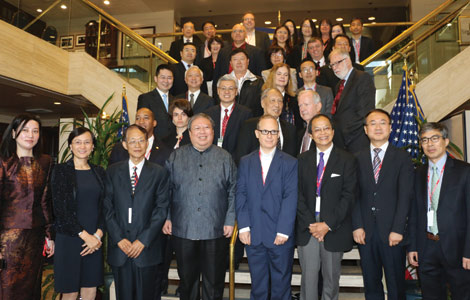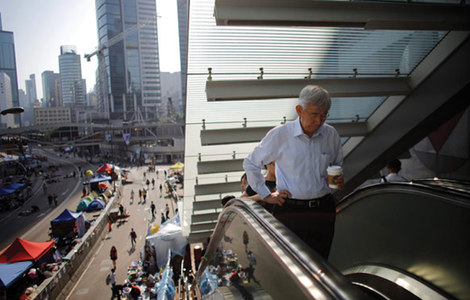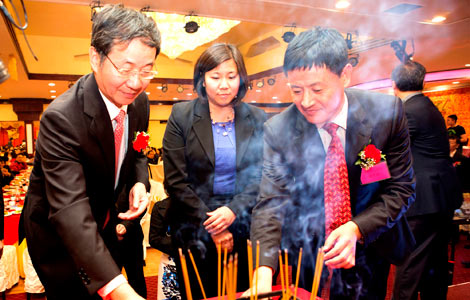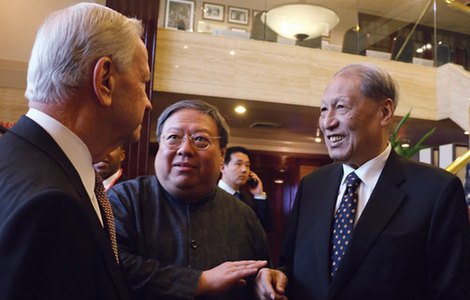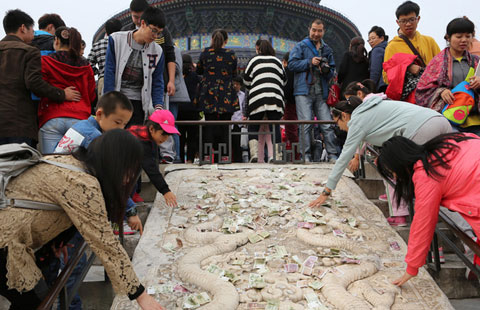World Bank weighs protest's economic impact
Updated: 2014-10-07 03:32
By Agence France-Presse and Xinhua(China Daily)
|
||||||||
Protests in Hong Kong could hurt the city's economy - as well as the Chinese mainland's - but the impact will depend on how long the "uncertainty" lasts, the World Bank's chief economist for Asia said on Monday.
Sudhir Shetty said the bank was closely monitoring events in Hong Kong, where thousands of protesters have paralyzed major streets for more than a week in a tense standoff with the government.
"Obviously we are looking very closely at the situation and following it and looking at its impact," he told reporters in Singapore.
"The impacts will be both on the Hong Kong Special Administrative Region itself - their economy - but also in terms of the broader impact on the Chinese economy.
"As of now, what we anticipate is obviously a greater impact on Hong Kong SAR - so slower growth in 2014 than was being anticipated earlier."
Shetty added that "at this stage, our best estimates ... are that there isn't as yet significant spillover to the broader Chinese economy".
The World Bank does not provide a forecast for Hong Kong's economic growth because it covers only developing economies.
"The only point I would make is that both the short-term impacts on growth, as well as the more medium-term impact on its role as a financial center, will depend, obviously, very much on how the current uncertainty plays out," Shetty said. "Uncertainty is not a good thing for economic activity."
Meanwhile, current and past politicians in different countries expressed their views on the Occupy Central movement in Hong Kong.
Charles Powell, who served as private secretary to then British prime minister Margaret Thatcher, said on Sunday he did not believe the protest would lead to a change.
"The position about elections has been clear since the law was published in 1991, and I don't believe for one moment that the Chinese are going to change that basic position," Powell told British BBC Radio 4's The World This Weekend.
"Hong Kong has always been part of China," Powell said. "We rented for a while, and we didn't introduce democracy."
Singapore's Foreign Minister K. Shanmugam said on Saturday that many news reports have intentionally ignored the fact that Hong Kong didn't have a democratic system under British rule for some 150 years. Beijing's plan gave Hong Kong more democratic space than what it had before, he said.
- HK's reform must follow constitutional framework
- Pragmatism is what HK must pursue - not protests
- Handover 'brought democracy to HK'
- Firmly safeguard rule of law in HK: People's Daily
- Protests harm HK economy
- Critics lash out at protestors for jeopardizing HK's future
- Martin Jacques: HK democracy idea 'introduced by China'
- HK urges end to 'Occupy' protests
- HK protests challenge supreme power organ: People's Daily
- HK govt urges end to 'Occupy' protests
- Chinese mainland is Hong Kong's future: the Guardian
Most Viewed
Editor's Picks

|

|

|

|

|

|
Today's Top News
World Bank cuts China growth forecast
World Bank weighs protest's economic impact
162,629 'phantom' staffers taken off govt payrolls
Holiday tourism enthusiasm continues in China
Smog, fog to shroud China
Many voices call for end to HK protest
Canada's Chinese groups see distortions by 'Occupy Central'
Services growth hits 8-month low
US Weekly

|

|
